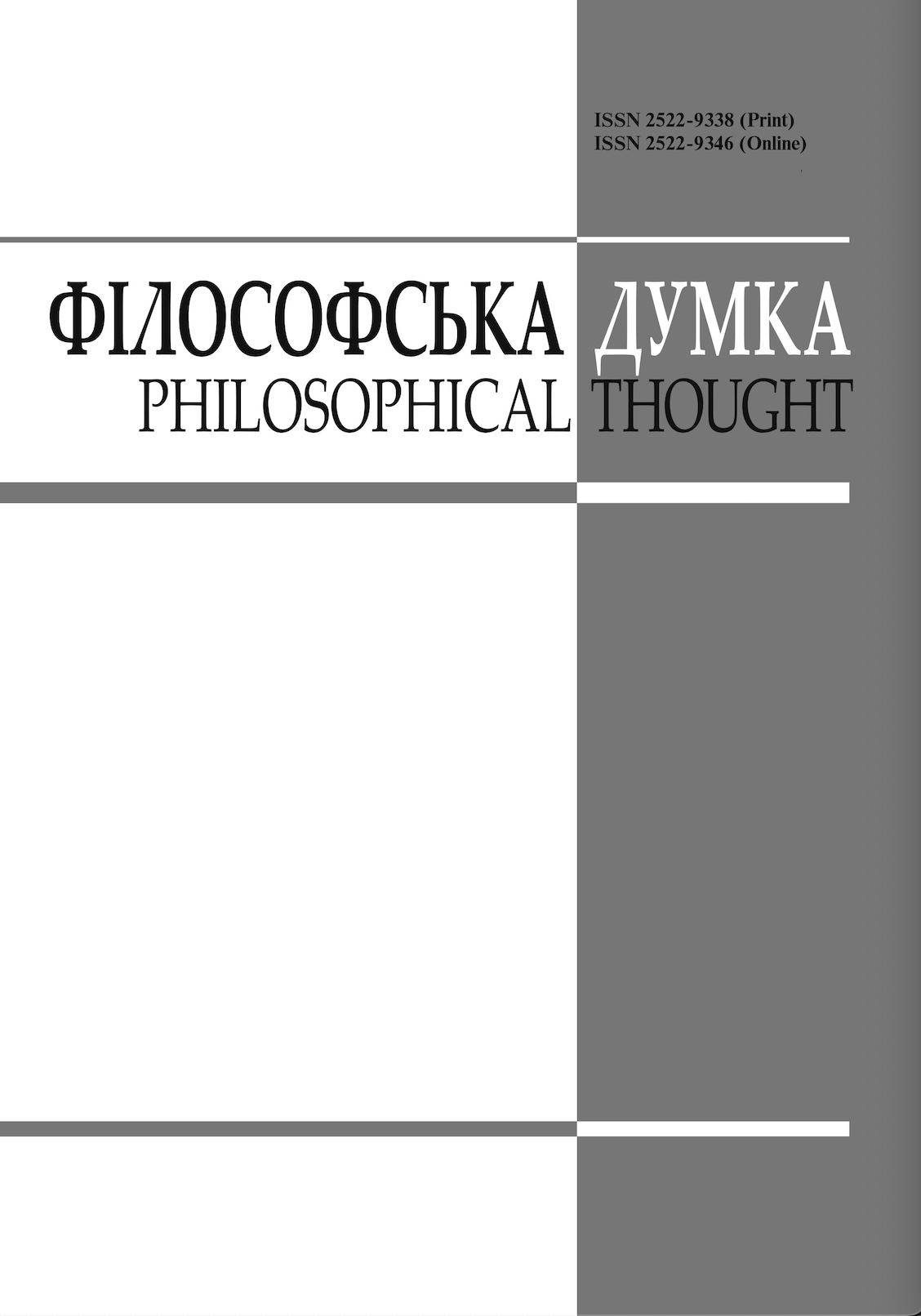WAR AND THE ENVIRONMENT: ECOLOGICAL, ETHICAL AND ANTHROPOLOGICAL DIMENSIONS
Round Table
DOI:
https://doi.org/10.15407/fd2025.03.007Abstract
Yermolenko, A. (moderator), Gardashuk, T. (moderator), Remezova, O., Havryliuk, R., Hutsalenko, O., Kisselyova, O., Karachevtseva, L., Boichenko, N., Karpenko, K., Gomilko, O., Biriuk, N., Vatsyk, Yu., Balinchenko, S., Adamenko, B.
This issue of the Philosophical Thought journal is dedicated to the interdisciplinary study of the environmental impact of war on humans and society. It contains materials from the roundtable discussion, 'War and the Environment: Ecological, Ethical and Anthropological Dimensions', which took place on 28 March 2025 at the H. Skovoroda Institute of Philosophy, National Academy of Sciences of Ukraine (moderators: Anatoliy Yermolenko, Corresponding Member of the National Academy of Science of Ukraine, Director of the H. Skovoroda Institute of Philosophy; Tetiana Gardashuk, Doctor Hab. in Philosophy, Head of the Department of Logic and Methodology of Science) and thematic articles.
The roundtable, which brought together philosophers, natural scientists, and other humanities experts, provided an opportunity for a broad dialogue to find answers to today's challenges. It also allowed for a deeper understanding of how war transforms the environment, the value system, and the very essence of man. The discussion covered direct and indirect environmental damage (destruction of ecosystems and habitats, natural resources, agricultural lands, pollution, and climate change) and anthropological transformations caused by war, as well as ethical, philosophical, and artistic reflections on these issues. The impact of the war on the geological environment and the country's mineral resources was highlighted. The importance of evaluating these resources for the country's socio-economic potential and post-war rebuilding was emphasized. One of the central issues was the impact of Russian aggression on Ukrainian identity, particularly in terms of destructive environmental changes. Other issues included the moral and ecological dimensions of war, and rethinking ecocide as an ethical and existential catastrophe, as well as ways to confront it. It was also noted that nature is not only a 'silent victim' of war, but also a witness to tragic events, which leaves a unique imprint on the landscape of our memory.
Participants also expressed their support for holding regular roundtable discussions on the topic of “War and the Environment”.
Downloads
-
PDF (Українська)
Downloads: 34
Published
How to Cite
Issue
Section
License
Authors who publish with this journal agree to the following terms:
- Authors retain copyright and grant the journal right of first publication.
- Authors are able to enter into separate, additional contractual arrangements for the non-exclusive distribution of the journal's published version of the work (e.g., post it to an institutional repository or publish it in a book), with an acknowledgement of its initial publication in this journal.
- Authors are permitted and encouraged to post their work online (e.g., in institutional repositories or on their website) prior to and during the submission process, as it can lead to productive exchanges, as well as earlier and greater citation of published work (See The Effect of Open Access).


